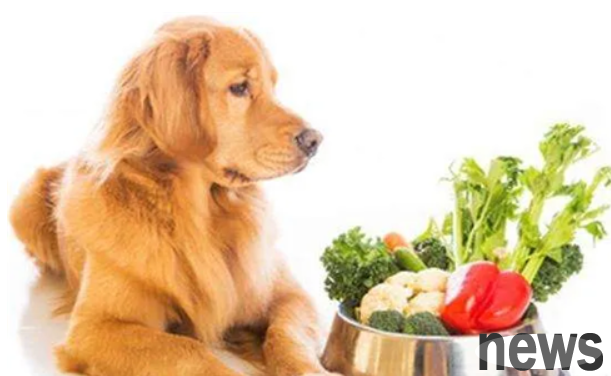Vegetables are indispensable foods for everyone's daily life, and can ensure the necessary nutritional elements such as vitamins and minerals for the body. For dogs, vegetables are also an indispensable part of the diet.
Unlike cats who are pure carnivorous animals, dogs are omnivorous and their bodies must consume vegetables. However, the proportion of vegetables intake cannot be higher than 25%. Taking small amounts of vegetables can be more beneficial to their physical and mental health.
But not necessarily vegetables are suitable for dogs. In addition to the onion ingredients that people know, what foods are not allowed to dogs? Let’s learn about them.

Fungi
In fact, in strict sense, fungi cannot be considered a vegetable that is harmful to dogs. People are unwilling to let dogs eat mushrooms because they are unwilling to let dogs understand the taste of fungi.
Once the dog tastes the smell of fungi, it will feel that all the fungi are edible, which makes it very easy to swallow poisonous mushrooms in the wild.
Peas
Peas contain nutrients such as potassium, phosphorus, vitamin b2, etc., and are a good vegetable for all human beings. But this does not mean that dogs are suitable for eating lentils. The dog's own digestive tract is insufficient and the gastrointestinal function is poor.
And peas are a very difficult ingredient to absorb. Taking peas by dogs is very likely to cause abdominal distension, and in severe cases, diarrhea and fever will continue to occur. Therefore, it is not recommended to feed peas to dogs.
Celery
Celery is a common vegetable on the dining table. It contains a variety of nutrients, which can lower blood lipids, clear intestines and detoxify and prevent atherosclerosis. But for dogs, the advantages of celery are not as good as one flaw.
As the saying goes, success is Xiao He and failure is Xiao He. Celery is loved by everyone because of dietary fiber. Dogs cannot eat celery because of its dietary fiber. The dog's gastrointestinal tract cannot digest and absorb this chemical fiber, and it is very easy to cause the dog to suffer from poor digestion and severe constipation after taking it.
Bean sprouts
Bean sprouts are crispy, juicy, rich in nutrition, and many people like them very much. But for dogs, bean sprouts do not have a good food. Dogs are not easy to digest and absorb bean sprouts, so eat less if you can. It is best not to eat again.
Especially for dogs that are not very good for gastrointestinal effects, owners must not feed bean sprouts, otherwise it will only aggravate the dog's digestive tract problems.
Leek
Isn't leek dumpling fragrant? It smells fragrant! But for dogs, amaranth is poisonous. Amaranth contains a lot of sulfate, which can destroy the ingredients in the bloody night of dogs, cause iron deficiency anemia in dogs, and may even harm the spinal cord.
And amaranth is a food that contains irritating effects. It is easy for dogs to cause colitis after taking it, and may cause nausea, vomiting, diarrhea and other symptoms. Therefore, the leek dumplings are delicious or the owner will gradually enjoy them. Do not feed the dogs leeks.

tomatoes contain flavonoids and atropine. If taken too much, it may cause the dog to be poisoned and harm the dog's life. Some dog foods will add tomatoes to the ingredients because small amounts of ripe tomatoes are safe and reliable.
However, in our daily life, we cannot effectively grasp this amount, and our tomatoes do not have many necessary nutrients for dogs, so it is not necessary to feed the dogs tomatoes.
The above are the 6 kinds of vegetables that dogs cannot eat below.
In fact, there may be many vegetables that dogs can eat, such as carrots, broccoli, winter melon, loofah, rafts, sweet potatoes, potatoes, broccoli, Chinese cabbage, roe, green peppers, etc. These can all give trace elements to the development of dogs and can also help digestion.
In addition, there are some areas that must be paid great attention to when feeding dog vegetables, so everyone should remember them.
1. When preparing vegetables for your dog in advance, it is best to separate from the main meal at home to prevent too many condiments.
2. Be sure to chop all the food taken by dogs and boil it, remember to be thoroughly cooked.
3. When feeding vegetables, you must persist in small quantities and do not feed them as a regular meal.